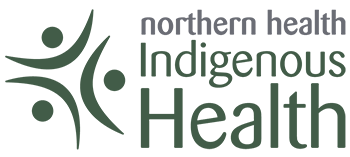Each week, the Indigenous Health department highlights good news stories from the North and from across the country.
Reconciliation through sport inspires Indigenous-led bid to bring the 2030 Olympics, Paralympics to B.C.
The Squamish word Chen Chen Stway means to hold each other and lift each other up. Tewanee Joseph said it also represents “the whole thrust” of Canada’s Indigenous-led bid to bring the 2030 Olympics and Paralympics to British Columbia.
Joseph was approached by Canadian Olympic President, Tricia Smith about making the process Indigenous-led. “What immediately flashed through my mind was that for over 100 years we’ve been wanting to be at the same tables as everyone else with an equal voice. And when she mentioned that this could be an Indigenous-led process, for me that could be something that could help change and transform our country in a way that I’ve never seen before.”
Joseph, a member of the Squamish Nation, an Indigenous-led bid means following calls to action regarding sport under the report by the Truth and Reconciliation Commission – Call 91 calls for officials and host countries of major sporting events to “ensure that Indigenous peoples’ territorial protocols are respected, and local Indigenous communities are engaged in all aspects of planning and participating in such events.”
Joseph now holds a seat at the table as a core member of the team attempting to bring the 2030 Winter Olympics and Paralympics to British Columbia.
Read the full article from CBC Sports.
B.C Government announces new law to fight systemic racism
The provincial government of British Columbia says new legislation, called the Anti-Racism Data Act and aims to target racism, was co-developed with Indigenous leaders.
The law will use data collection to help fix the gaps in government programs and services for Black, Indigenous, and racialized people in the province. John Horgan says, “Our province is shaped by diversity with people from all over the world choosing to come to B.C. to build a better life, but for too long, systemic racism and long-lasting effects of colonialism have unfairly held people back when it comes to education, job opportunities, housing and more.”
The Act was co-developed with Indigenous leaders under the Declaration on the Rights of Indigenous Peoples Act which passed into law in 2019.
The Anti-Racism Data Act follows the recommendations from B.C. Human Rights Commissioners report, The Grandmother Perspective, which called for data to develop policies that address systemic racism and eliminate inequities. It also follows recommendations from the In Plain Sight report by Mary Ellen Turpel-Lafond, which addresses anti-Indigenous racism in health care.
Read the full article and learn more from APTN News.
Fort Nelson First Nation seamstress sharing her work one stitch at a time
Shirley Jagodics Harrold shares her love of life one stitch at a time. For over 20 years she has designed traditional and contemporary one-of-a-kind creations.
The Shuswap and Hungarian artist lives and creates in the small northeast British Columbia community of Fort Nelson First Nation. Harrold creates everything from men’s grass dance outfits, jingle dresses, ribbon skirts, rendezvous attire, moose hide vests, and more.
Due to the remoteness of the area in which she lives, she has made her own fabric corner and fixes her own machines when they break down. She pours her heart and soul into her work, no two items are the same and she is not in it for the money. Harrold tries to keep her items as inexpensive as possible.
The seamstress walks a fine line of respecting tradition and incorporating contemporary flair into her work. Her goal is to be proud of her work and ensure her clients are proud while wearing it, a responsibility she doesn’t take lightly.
Read the full article from APTN News.

